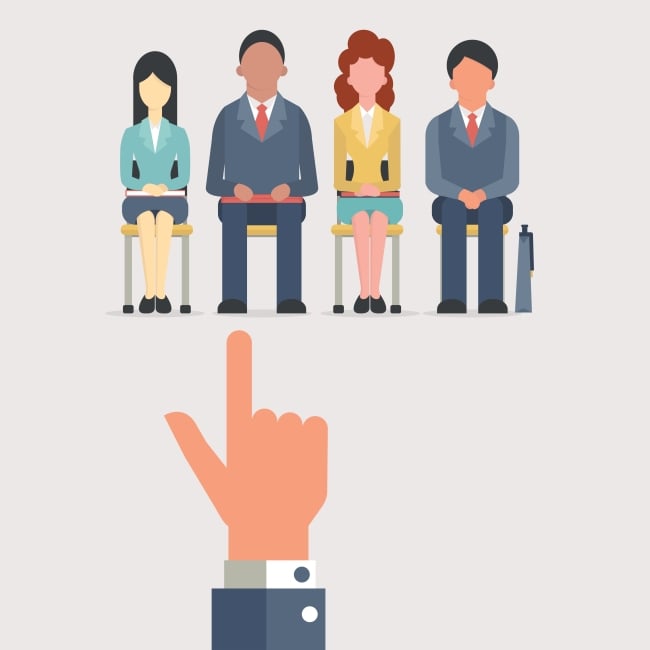You have /5 articles left.
Sign up for a free account or log in.

istock
It’s been tough to concentrate on your grad school work because you’ve been waiting to hear about that job you applied for a few weeks ago. You finally heard back from the organization and are lucky enough to get an interview for that position. It’s a good opportunity and you want to do a great job on the interview. It doesn’t matter whether you have two days or two weeks before your interview. Start your planning and preparation now with these 13 steps.
Get the details. Be sure to ask enough questions about the interview when you get the invitation. Find out the names and titles of people who will be interviewing you. Ask if it will be a series of individual interviews or a panel interview. Find out how much time to block out on your calendar for the interview(s). Ask where you should enter the building (perhaps the main front entrance or possibly the back entrance by the parking lot), whom to ask for when you arrive and where to park your car if you’re driving.
Research the organization. It is essential that you know enough about the organization to explain what they do and to talk about how you could fit into its mission. Dig into your network and find out who might know someone who works at the organization. Ask him or her about the organization’s culture, the comradery in the lab, dress code, growth opportunities and other things you may want to know. Be sure to research compensation using Glassdoor or other online tools.
Practice your answers. Some interview questions are common ones. Do online research to find both common interview questions and questions that are asked in specific situations, such as postdoc interviews. The goal in rehearsing is not to memorize a set of answers to common interview questions but to practice listening carefully and responding extemporaneously to such questions. Practice answering potential interview questions with a friend who can help guide you if your answers are weak, your eye contact is poor or your body language is not speaking positively for you.
Prepare questions to ask. When the interviewer asks if you have any questions, your answer should be yes. Asking questions about the organization gives you the opportunity to show you are engaged and inquisitive. Create a list of 15 to 20 questions and bring that list with you to the interview. Some of those questions will probably be answered as part of your initial discussion. Ask the questions that remain unanswered and any that come up during the interview. Be sure to ask about the next steps in the selection process.
Plan your route. Be confident about your route and destination. Even if you will walk to the interview, you should be confident in how to get to there. Be able to pick out the building when traveling by it. Drive the route ahead of time if you’re not familiar with the areas you need to cover. If you need to use public parking, identify the best parking lot and a backup lot in case you need it.
Get your clothes ready. Your knowledge of the industry and research about the organization should clue you in on their overall dress code. My suggestion is to err on the conservative side. Not all employers embrace nose jewelry, large neck tattoos or purple hair. Tone down your appearance if needed and show your professional side.
Collect your materials. Put together a portfolio, pens and copies of your résumé or CV on good paper, a list of references, interview location, names of whom you are meeting, and your list of question to ask. You may have to pay for parking, so have your credit card or enough cash with you.
Arrive early. Checking in for your interview about 10 minutes early is good form. More than 10 minutes may leave them uncomfortable because you’re waiting so long in their reception area. Thirty minutes is too early and could make the interviewer feel pressured. Arriving right on time may be considered late by some people. Be sure to figure in a time cushion when planning your travel route. Then add some extra time so that you won’t be unduly held up by bad weather, traffic jams or other unforeseen events.
Every minute counts. Be professional and on your game from the moment you enter the organization’s physical space. That means you shouldn’t cut someone off for the last parking spot, spit your gum on the pavement or get annoyed when the receptionist says the interviews are running 30 minutes behind schedule. You never know who is watching you or who will be asked for their feedback about your interactions. After you check in for your interview, sit where directed and keep yourself occupied. Check out the company literature if some is available. Review your CV or your list of questions to ask. Take some deep breaths and believe that you are a strong candidate.
Take notes. Be sure to take notes about important job roles, challenges you’ll face and skills the organization is seeking. You can use this information during your interviews and in your follow-up communications.
Make connections. You should already have some basic information about the position and the organization. You can use that information when answering questions. For example, if the interviewer asks about your computer skills and you know that Excel is an important skill they want, be prepared to discuss your experience creating macros, pivot tables and data-rich custom dashboards.
Say thank you. A thank-you letter is a great way to stand out from the crowd during the interview process. Write a strong letter that incorporates what you learned about the job and how your background fits the opportunity. For example, the interviewer may have said the organization needs someone who is self-directed with excellent time-management skills. Your letter could explain how writing your thesis honed your skills in these areas. Create a different thank-you note for each interviewer. Customize each letter based on the job requirements and the content of your interview. Send your notes out as soon as possible -- and no later than 48 hours after the interview.
Follow up. Asking about the organization’s next steps in the selection process helps you decide on the optimum timing for following up with them. If the interviewer tells you that the organization expects to make a decision within a few days, you know that your window to send thank-you letters is very short. If so, consider your thank-you note as your initial follow-up tool. If the organization’s selection time frame is longer, or you don’t hear from them after sending a thank-you note, allow one to two weeks before you contact someone to ask about the status of the position.
Job interviews will remain an evaluation tool for job seekers for many years to come. This list of preparation steps can serve as your guide during grad school, after graduation and throughout your career.








